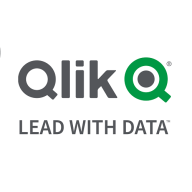

Matillion Data Productivity Cloud and Qlik Compose are strong competitors in the data management sector. Matillion stands out for its user-friendliness and affordability, appealing even to non-technical users, while Qlik Compose offers a comprehensive feature set, justifying its higher cost according to user feedback.
Features: Matillion Data Productivity Cloud is known for quick setup, reducing ETL setup time significantly. It integrates seamlessly with AWS services, supports mid-transform data sampling, and offers run-time parameters for flexibility. Qlik Compose provides graphical data representation, rapid data hub creation, and effective automation capabilities. It supports both ETL and data integration processes, making it highly versatile compared to Matillion's primary focus on ETL.
Room for Improvement: Matillion can improve its API update frequency and documentation. Users also desire more advanced integrations and customization. Qlik Compose could enhance data transformation functions, scalability, and its handling of complex SQL tasks. Enhanced monitoring features and more intuitive interfaces are areas both tools could improve.
Ease of Deployment and Customer Service: Matillion's cloud-based architecture simplifies deployment, and its technical support is praised for responsiveness and helpful resources. Qlik Compose offers deployment flexibility with support for on-premises and private cloud solutions. Its technical support is effective but may lack depth during initial interactions compared to Matillion's detailed support.
Pricing and ROI: Matillion offers flexible AWS Marketplace pricing, charging hourly based on instance type, making it cost-effective for short usage periods. Users find it cheaper than alternatives, though it may seem expensive at larger scales. Qlik Compose has a higher pricing structure influenced by data volume and corporate discounts. Both products show potential ROI within a year, with Matillion supporting reduced operational costs through cloud efficiencies.


Matillion Data Productivity Cloud features an intuitive graphical interface, seamless AWS integration, and efficient data management. Its tools streamline complex tasks for SFDC, RDS, Marketo, Facebook, and Google AdWords.
Matillion Data Productivity Cloud provides fast transformations with built-in verification, easy scheduling, and sampling. With automatic scalability and diverse data source support, it simplifies complex data tasks. Users benefit from cloud data warehousing and integrating data into Snowflake while appreciating its ease of use by non-technical teams. Enhancements can focus on frequent API adjustments, improved documentation, faster performance with less latency, and better error handling.
What are the key features of Matillion Data Productivity Cloud?
What benefits and ROI should users seek in reviews?
In industries such as technology, finance, and healthcare, Matillion Data Productivity Cloud is implemented to streamline ETL processes, optimize data pipeline construction, and enhance data migration efforts. It supports efficient data loading and integration between cloud and on-premises databases, aiding industries in managing data-driven projects.
Qlik Sense is a powerful business intelligence tool that offers a range of features to help organizations make faster and more informed decisions. Its primary use cases include operational and financial dashboards, self-service reporting, and centralized access to cross-functional reports. The solution is praised for its mobile platform, ease of use, data-sharing capabilities, and extensibility.
Qlik Sense has helped organizations improve data literacy, reduce time consumed in complex reports, and provide widely available MI to senior stakeholders. It also enables self-service analytics, improves data quality and governance, enhances collaboration, and reduces costs.
We monitor all Cloud Data Integration reviews to prevent fraudulent reviews and keep review quality high. We do not post reviews by company employees or direct competitors. We validate each review for authenticity via cross-reference with LinkedIn, and personal follow-up with the reviewer when necessary.